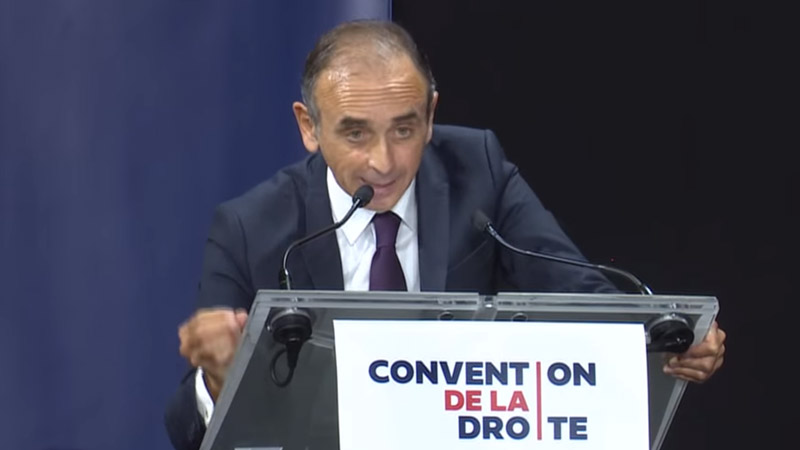By Emanuele Mastrangelo
“Incitement to hatred”. According to the Paris prosecutor’s office, Éric Zemmour is guilty of expressing “public insults on 28 September because of origin or belonging or not belonging to a particular ethnic group, nation, race or religion” and “public incitement to discrimination, hatred or violence” in a speech. The investigation is entrusted to the BRDP (Brigade de Répression de la Délinquance faites aux Personnes), a French body responsible for combating “hatred”, i.e. ideological crimes.
So what is the “crime” of Zemmour? In his speech to the Convention of the Right on September 28, Zemmour denounced the creeping Islamization of France and the ethnic displacement of the French by African and Muslim immigrants. Although statistical surveys based on ethnicity, race or religion have been banned in France for many years, unofficial surveys show that the proportion of the population of the French hexagon of black African or Maghreb origin accounts for more than a fifth of the total number of citizens (including the first, second and third generations). In the Paris suburbs, more than half of the people registered in the population register bear an Islamic name. In France, however, the public (and controversial) presentation of this data is considered a “hate crime.” In other words, one cannot speak of anthropological changes in the French population, and if one does talk about it, then only in a positive way.
Now Zemmour is listed on the Paris Register of Suspects. In addition, the journalists’ union of “Le Figaro” (SDJ), a daily newspaper for which Zemmour has worked since 1996, has publicly demanded the termination of his contract and collected over 400 signatures against the colleague because “the vast majority of “Figaro” journalists do not want to be associated with these provocations,” according to the SDJ statement.
In Italy, such an ideological attitude is not yet prohibited by law. However, recent developments, in particular the Commission of Inquiry on Hate Speech called for by Senator Liliana Segre and supported by former Prime Minister Giuseppe Conte, as well as the regulations and declarations of intent recently issued by AGCom and the Ordine dei Giornalisti, point to a rapid adoption of the French model, which includes an increase in the number and nature of thought crimes and a tightening of the Provides for penalties for the offences already provided for in the Criminal Code.
This article was first published by CENTRO MACHIAVELLI, our partner in EUROPEAN MEDIA COOPERATION.

